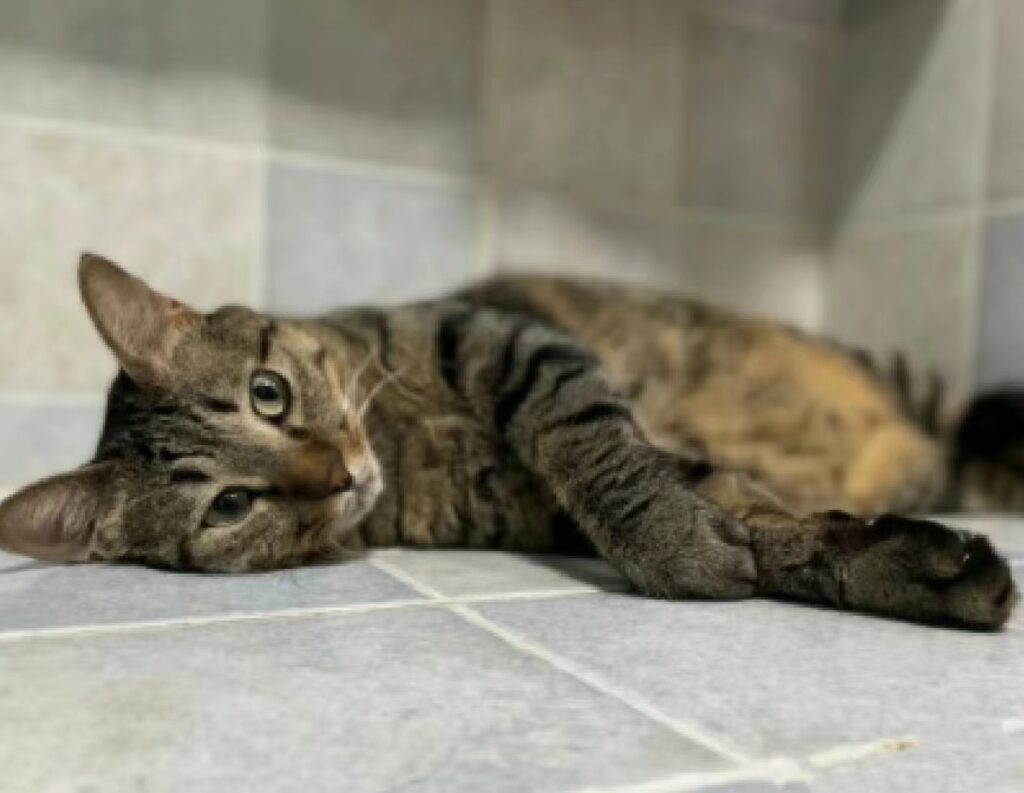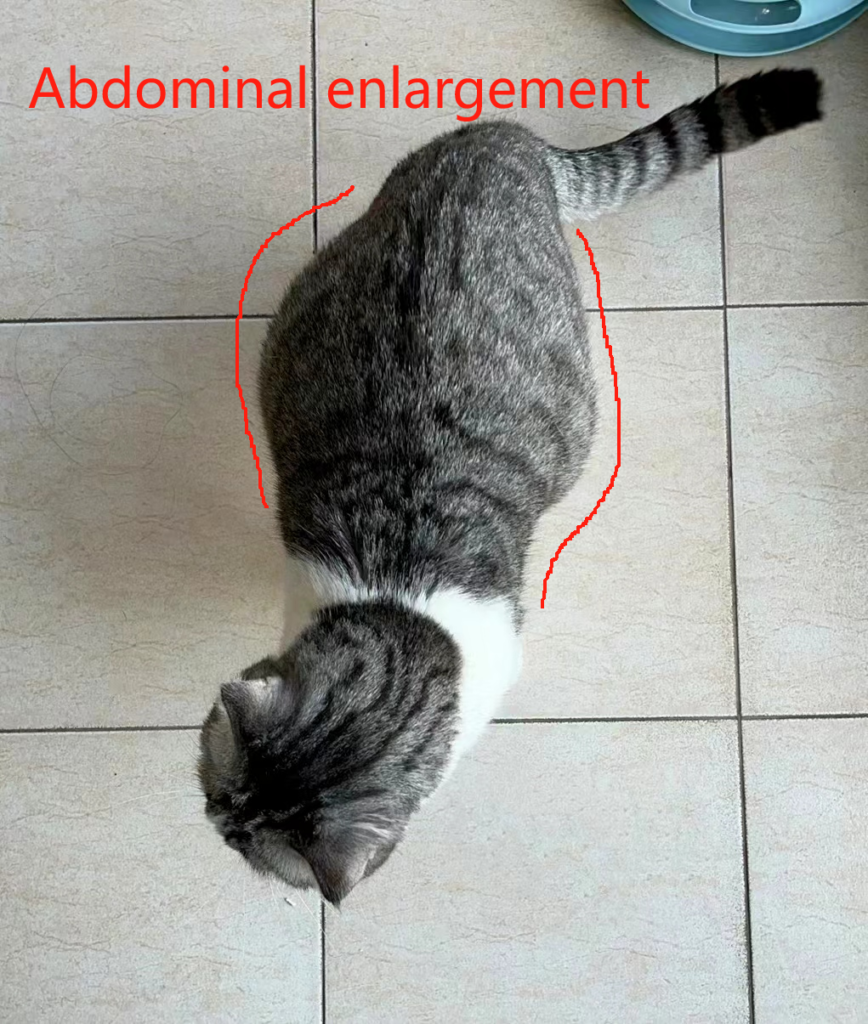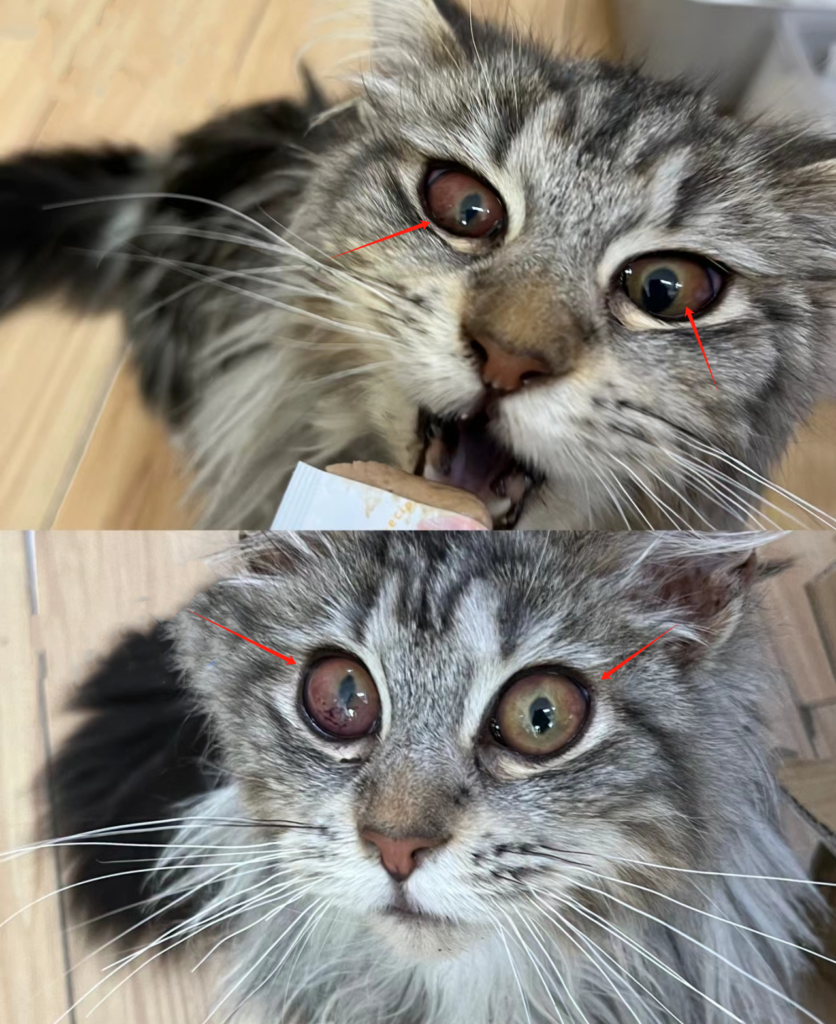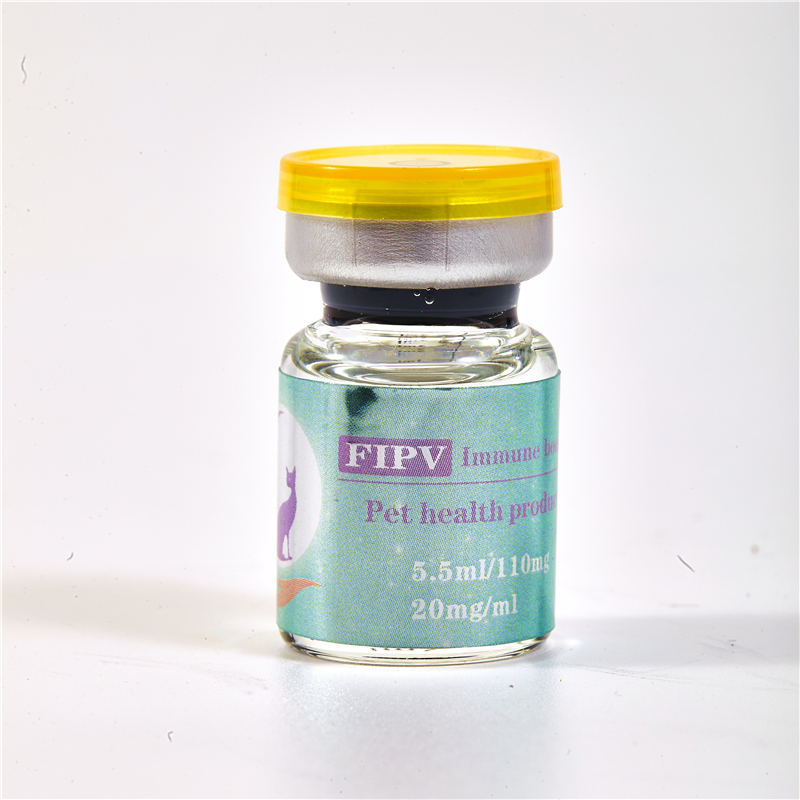Feline Infectious Peritonitis (FIP) is a fatal disease caused by feline coronavirus (FCoV) infection. FCOV is a common virus. Most of the infected cats only manifest in slight diarrhea or asymptomatic. However, some cats can develop into FIP when the immune system cannot effectively respond to the virus.
FIP is a complex disease, divided into Dry Form and Wet Form. Symptoms may include fever, diarrhea, jaundice, weight loss, etc. Eczema FIP is manifested as the internal effusion in the body cavity.
FIP(feline infectious peritonitis) can be divided into the following stages based on the course of the disease:
Early symptoms:
Loss of appetite (but still able to eat and drink), depression (occasionally playing), vomiting, diarrhea and weight loss, gradual increase in abdominal circumference/abdominal breathing (dry without thoracic and ascites), mild anemia (or not anemia) , persistent fever (39.8~40.6°C, higher at dusk and gradually decreases at night)

Mid-term symptoms:
Abdominal enlargement, significant weight loss/shortness of breath (dry without thoracic and ascites), persistent loss of appetite, malnutrition, depression, moderate to mild anemia (HCT>20), jaundice (yellow ears, yellow urine), Persistent fever (39.8~40.6°C, higher at dusk and gradually lower at night).

Late symptoms:
Late symptoms may include eye lesions, neurological symptoms, and organ failure. Such as uveitis, iritis, generalized convulsions, nystagmus, and incontinence. At the same time, there are also signs of worsening of related symptoms in the early and middle stages.

Currently, there is no definite cure for FIP feline infectious peritonitis, but some supportive treatments can be taken to relieve symptoms and improve your cat’s quality of life. Treatment may vary at different stages of FIP.
Here are some possible treatments:
Early stage: You can try to use anti-inflammatory drugs, blood-enhancing drugs, etc.
Middle and late stages: In addition to the use of anti-inflammatory drugs and blood-tonifying drugs, it is used in combination with GS-441524, a specific drug for treating abdominal transmission in cats.
It is important to note that FCoV infection is common in cat populations, but not all infected cats will develop FIP. However, in cats with FIP (feline infectious peritonitis), the condition is often fatal, and no effective treatment is currently available.
If your cat is exhibiting symptoms similar to FIP, it is recommended to consult a veterinarian as soon as possible to obtain the correct diagnosis and treatment plan.
